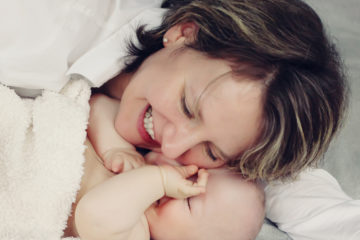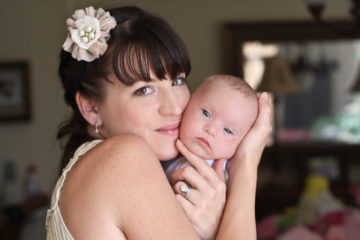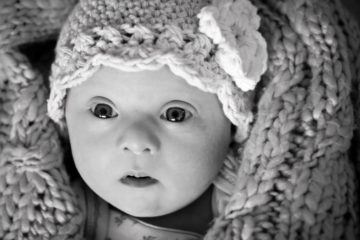Many parents choose to receive a diagnosis in order to receive more prenatal care, yet the prenatal care for a Down syndrome pregnancy varies throughout the country. Sometimes expectant parents are grateful for the additional time to prepare and get more aggressive treatment and monitoring. Other times they feel stressed by the weight of the knowledge or confused about what medical care they should expect.
Our Resources
See Also: Monitoring Your Pregnancy Post-Diagnosis chapter in our book, “Diagnosis to Delivery: A Pregnant Mother’s Guide to Down Syndrome.”
More Resources/Articles
The “Management of Pregnancies Diagnosed with Down Syndrome” guide produced by Perinatal Services BC in Canada currently offers the only standardized pregnancy management guidelines to optimize maternal and newborn outcomes for parents preparing for the birth of a baby with Down syndrome.
The updated AAP Down syndrome health guidelines also offers some specific suggestions for prenatal care.
Parent Quotes
Parents reflect on their prenatal care experiences and how they felt about the different tests and medical care:
From Nancy, talking about her prenatal care and tests with a baby who also had an AVSD:
I had monthly ultrasounds for growth, late-in-pregnancy non-stress tests, and several fetal echocardiograms (Gabby had an AVSD). I was grateful for the testing – it felt like it was the only thing I could do to try to help my baby. But it was tough to go to all of these appointments on top of the regular OB appointments. With three small children at home, babysitting was an issue, especially with a kindergartener and a preschooler who were coming and going for school.
From Jawanda, talking about how her pregnancy did not require extra medical care but she appreciated her doctor connecting with other families:
My daughter is 11 years old. I had a prenatal diagnoses by choice. My doctor didn’t offer a lot of extra tests at that time. We did one extra ultrasound but that was at my request. My doctor was very practical. One of his biggest concerns was making sure I was connected to others who had been on this same journey. He recognized that he wasn’t the expert and others would know more how to help us through the early intervention maze etc. I believe if there had been cause for more tests, he would have suggested those. I had an easy delivery, an easy pregnancy (minus that Down syndrome thing), and I was connected to my pediatrician and early intervention provider prior to arrival. And a friend or two.
From Maggie, discussing some of the extra appointments she had during her pregnancy and her short time in the NICU when her baby was born slightly early:
After we found out at 19 weeks (routine ultrasound showed some bilateral ventriculomegaly which prompted an amnio – Down syndrome was not what we were expecting to find, but that’s what it was!) we were immediately scheduled for a fetal echocardiogram which looked good. We started seeing the perinatologist every few weeks, then weekly at the end for ultrasound growth checks and non-stress tests. My regular OB/midwife appts were the same as they would have been – more frequent as delivery neared. Our daughter appeared healthy and didn’t have obvious complications so we planned a natural delivery, which we were able to achieve when she arrived spontaneously at 37 weeks!
During this time, we chose to meet with perinatologists at the hospital where we delivered, to learn about the NICU and what would happen if our daughter needed NICU care (she did, but only for a few days). We also met with a geneticist to learn about DS and our future risks, and I got plugged into our early intervention system to learn about what they offer. We also called the local Down syndrome association and got some information from them.
Overall it was an easy pregnancy (except for all the vomiting early on!) – just had more appointments!
From Karyn explaining how the doctors kept an extra eye on her when Down syndrome was suspected during her pregnancy and delivered her early when the baby started struggling:
I was initially having extra ultrasounds because of my health issues. When they found her heart defect at around 19 weeks and advised me she probably had Down syndrome, I had extra ultrasounds to make sure her heart was coping.
I never had an amnio because I didn’t want to risk losing her – even a small risk was too much for me. But given they were 99% sure she had Down syndrome, and I wasn’t planning to terminate, then it wasn’t really necessary.
I liked the assurance that the doctors were keeping their eye on her and, although they told me some scary stuff about heart issues, she was actually fine when she was born. Because of the regular ultrasounds I had a c-section at 36 weeks when they identified that she was struggling.
They did expect she would need heart surgery straight away but in the end, she had it at 4 1/2 months old and has never looked back.
From Amy, describing how she chose a supportive doctor and how the aggressive prenatal care likely saved her baby’s life:
When I was pregnant with Dylan, I saw a regular OB/GYN, who sent me to a Maternal-Fetal Medicine specialist when my bloodwork came back high-risk for Down syndrome. We found out that Dylan had Down syndrome via diagnostic ultrasound (saw a duodenal atresia, a PFO, and shortened femur and humerus bones). It was confirmed via amniocentesis. We also met with a geneticist at that time to discuss family history, what exactly Down syndrome “was”, etc. After I got the diagnosis, my regular OB made some really mean, ugly remarks, so I switched to a high-risk OB/GYN (and I loved her!), who I saw weekly. I also saw the MFM regularly (every 3 weeks at first, then every couple of weeks to watch my amniotic fluid, which was high). I also met with a pediatric surgeon because my baby was going to have surgery right after his birth (doudenal atresia repair). I had routine non-stress tests at the hospital each week (also due to my amniotic fluid being high). So I would say I was “doctored” out by the end. Dylan was born at 37 weeks gestation via “urgent” c-section by two resident doctors I’d never seen before in my life. But I’m glad we took the “rather be safe than sorry” route. It saved my baby’s life! A routine-NST caught my son’s heart deceling into the 60′s, then my OB ordered a biophysical profile, which showed that my membranes had broken at some point. If they hadn’t been paying as close attention as they were, who knows how long my baby would have had cord compression issues … and it could have turned out way less pretty than it did!
On a side note, Dylan is the light of our lives. He is the easiest-going kid on the planet … he’s beautiful and wonderful, and we just love him!


